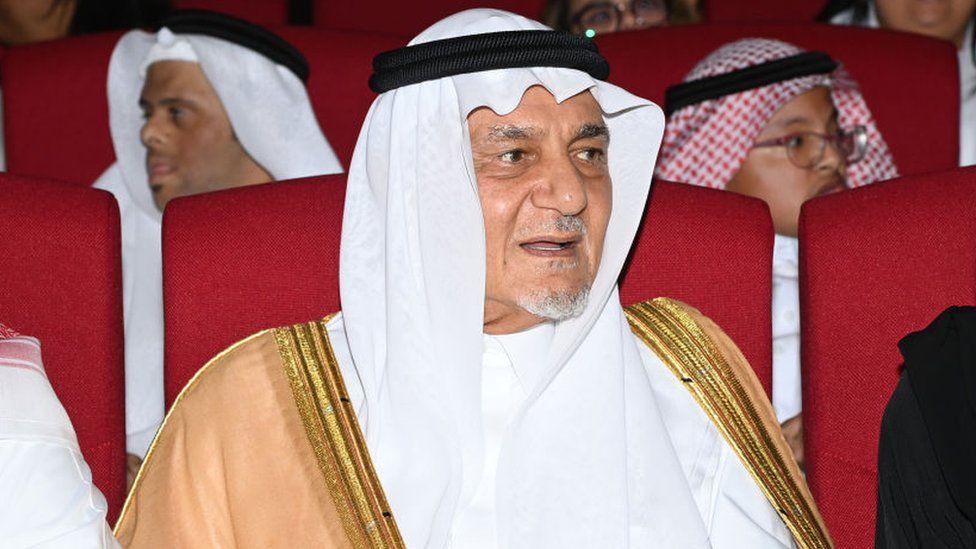-

-
-
Loading

Loading

Prince Turki al-Faisal of Saudi Arabia made a speech this week regarding the current violence in the Middle East. This speech is notable as it is unusually candid for a senior member of the Saudi royal family and provides insight into the Saudi leadership's perspective on the situation. In his speech, Prince Turki condemned both Hamas and Israel for their attacks on civilians, criticizing Hamas for going against Islamic teachings by harming civilians and highlighting that the majority of those killed or kidnapped by Hamas were civilians. However, he also criticized Israel for indiscriminately bombing innocent Palestinians in Gaza and arresting Palestinian children, women, and men in the West Bank. Prince Turki's condemnation of both Hamas and Israel is unusual considering the growing Arab anger towards Israeli airstrikes. He argued that all militarily occupied people have the right to resist occupation and criticized Western politicians for showing sympathy when Israelis are killed but not expressing sorrow when Palestinians are killed. President Joe Biden, during his visit to Israel, stated that the US mourned all innocent victims. The motivations behind Prince Turki's speech can only be speculated upon, but it is unlikely that he spoke without the approval of the Royal Court, led by Crown Prince Mohammed bin Salman, with whom he had discussions recently. Prince Turki has a distinguished background, with his father being the popular King Faisal and his brother serving as Saudi Arabia's foreign minister. His education in the US and UK has provided him with valuable insights into Western culture and thinking, as well as connections to decision-makers in Washington and London. He served as Saudi Arabia's spy chief for 24 years, including during the Afghanistan conflict, and later became the country's ambassador to London and Washington. Prince Turki's speech sheds light on Saudi Arabia's perspective on Hamas. Many governments in the region, including those of Egypt, Jordan, UAE, and Bahrain, view Hamas and its form of "political Islam" as a threat to their secular rule. The Palestinian Authority, led by Fatah, was effectively driven out of Gaza by Hamas in 2007. While Hamas maintains a political office in Qatar, its main supporter is Iran, which has historic rivalry with Saudi Arabia. Despite recent attempts to resolve their disputes, there is still mistrust between Saudi Arabia and Iran. However, they have jointly condemned Israel's bombing of Gaza and reaffirmed their support for a Palestinian state. Until recently, Saudi Arabia was on track to normalize ties with Israel, following the lead of the UAE, Bahrain, and Morocco. However, the Hamas raid into Israel has complicated that process, with some analysts suggesting that it was intended to disrupt the normalizing of relations and prevent Hamas and Iran from being marginalized in a rapidly changing Middle East. The future of the region is uncertain, with Israel unwilling to compromise and Arab governments wary of growing anti-Israel protests. However, Saudi Arabia may play a role in funding Gaza's reconstruction once the current conflict ends. Prince Turki's speeches will likely offer insights into Saudi Arabia's stance on future developments.